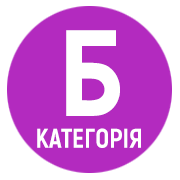ВІДКРИТИЙ ВЕБ-РЕСУРС «СУЧАСНІ ОПЕРАЦІЙНІ СИСТЕМИ»
Анотація
Одним із пріоритетних напрямів програми модернізації вищої школи є розширення освітнього інформаційного простору, реалізація принципу неперервної освіти, впровадження в освітній процес відкритих електронних навчальних курсів. Стаття присвячена перевагам відкритого навчального курсу – можливість реалізувати доступ всіх суб’єктів навчання до самостійної роботи та всіх тих, хто немає змоги навчатися у закладах вищої освіти очно. У статті розглядається власний відкритий веб-ресурс «Сучасні операційні системи» (http://surl.li/bicy), який створений авторами статті для галузі знань: 01 Освіта / Педагогіка, спеціальності 014 Середня освіта та впроваджений в освітній процес. Під час створення власного відкритого веб-ресурсу науковці визначили мету і завдання курсу, поділили навчальну інформацію на окремі блоки; послідовно подали інформацію за певною логікою; склали запитання для закріплення змісту відкритого курсу. Мета курсу полягала у формуванні уявлення студентів про вимоги до операційних систем, історію розвитку, класифікації, забезпеченні їх знаннями, які пов’язані з операційними системами та їх розвитком. На прикладі операційних систем сімейств MS Win2К (Windows 7 чи Windows 10) та GNU Linux (Ubuntu Linux) вивчаються системи керування процесами, керування пам’яттю, робота файлових систем, системи керування вводом-виводом. Створення власних відкритих веб-ресурсів вимагає більшої гнучкості, детальнішої розробки змісту, ретельнішого планування. Викладач повинен уміти: визначити мету і завдання курсу, поділити навчальну інформацію на окремі блоки; послідовно подати інформацію за певною логікою. Відкритий веб- ресурс «Сучасні операційні системи» реалізує філософію «педагогіки соціального конструкціонізму» й орієнтований на взаємодію викладача та студентів у процесі навчання. Цей курс активізує пізнавальну, творчу діяльності студентів, є необхідним ресурсом для дистанційного навчання студентів у зв’язку із епідеміологічною ситуацією (розповсюдження коронавірусу COVID-19), яка склалася навесні 2020 року не лише в Україні, а й в усьому світі.
Посилання
2. Barajas, M., Frossard, F. Mapping creative pedagogies in open wiki learning environments. Educ Inf Technol 23, 1403–1419 (2018). https://doi.org/10.1007/s10639-017-9674-2.
4. Bonk, Curtis J., & Charles, R. Graham (2012). The handbook of blended learning: Global perspectives, local designs. John Wiley & Sons.
5. Brown, John Seely, et al. (2008). Opening up education: The collective advancement of education through open technology, open content, and open knowledge. Mit Press.
6. Brown, S., John, & Adler, R.P. (2008). Open education, the long tail, and learning 2.0. Educause review, 43.1, 16–20.
7. Griffiths M.A., Goodyear V.A. & Armour K.M. (2021) Massive open online courses (MOOCs) for professional development: meeting the needs and expectations of physical education teachers and youth sport coaches, Physical Education and Sport Pedagogy, DOI: https://doi.org/10.1080/17408989.2021.1874901.
8. Hazari, Sunil, Alexa, North, & Deborah, Moreland (2019). Investigating pedagogical value of wiki technology. Journal of Information Systems Education 20.2, 8.
9. Kelly L. Page & Nina Reynolds (2015) Learning from a wiki way of learning, Studies in Higher Education, 40:6, 988-1013, DOI: 10.1080/03075079.2013.865158.
10. Lakhal, S., Khechine, H. Technological factors of students’ persistence in online courses in higher education: The moderating role of gender, age and prior online course experience. Educ Inf Technol 26, 3347–3373 (2021). https://doi.org/10.1007/s10639-020-10407-w.
11. Lo, C.-M., Han, J., Wong, E.S.W. and Tang, C.-C. (2021), “Flexible learning with multicomponent blended learning mode for undergraduate chemistry courses in the pandemic of COVID-19”, Interactive Technology and Smart Education, Vol. 18 No. 2, pp. 175-188. https://doi.org/10.1108/ITSE-05-2020-0061
12. Masoud Rahimi & Jalil Fathi (2021) Exploring the impact of wiki-mediated collaborative writing on EFL students’ writing performance, writing self-regulation, and writing self-efficacy: a mixed methods study, Computer Assisted Language Learning, DOI: 10.1080/09588221.2021.1888753.
13. Melda, M., Maksum, H., Indrawan, E., & Yuvenda, D. (2021). Contribution of Learning Motivation and Learning Attitude to Student Learning Outcomes in Digital Simulation Courses. EDUTEC : Journal of Education And Technology, 4(3), 387-399. https://doi.org/10.29062/edu.v4i3.190.
14. Morze, N., Varchenko-Trotsenko, L., & Tiutiunnyk, A. (2018). Methodology of mooc creation on Wikiportal. Electronic Scientific Professional Journal “OPEN EDUCATIONAL E-ENVIRONMENT OF MODERN UNIVERSITY”, (4), 52-60. https://doi.org/10.28925/2414-0325.2018.4.5260
15. Nejkovic, V. and Tosic, M. (2014), Wiki learning system patterns for academic courses. Comput Appl Eng Educ, 22: 678-685. https://doi.org/10.1002/cae.21559.
16. Park, Caroline L., et al. (2019). Evaluation of a teaching tool-wiki-in online graduate education. Journal of Information Systems Education 21.3, 5.
17. Parker, Kevin, & Joseph, Chao (2007). Wiki as a teaching tool. Interdisciplinary Journal of e-learning and Learning Objects 3.1, 57–72.
18. P. Chen, J. Song, M. Zhao and L. Song, “Building Discipline Knowledge Repository Based on Wiki Technology”, 2018 9th International Conference on Information Technology in Medicine and Education (ITME), 2018, pp. 407-410, doi: 10.1109/ITME.2018.00097.
19. Vidal-Carreras P.I., Garcia-Sabater J.P., Garcia-Sabater J.J., Perello-Marin M.R. (2018) Wiki as an Activity Learning. In: Viles E., Ormazábal M., Lleó A. (eds) Closing the Gap Between Practice and Research in Industrial Engineering. Lecture Notes in Management and Industrial Engineering. Springer, Cham. https:// doi.org/10.1007/978-3-319-58409-6_42.
20. Yuan, Li., & Powell, S. J. (2013). MOOCs and open education: Implications for higher education. Cetis.
21. Yusop, F.D., Muhammad Abdul Basar, S.M. Resistance towards wiki: implications for designing successful wiki-supported collaborative learning experiences. Univ Access Inf Soc 16, 349–360 (2017). https://doi.org/10.1007/s10209-016-0462-3.
22. Zhou, C, Lewis, M. A mobile technology-based cooperative learning platform for undergraduate biology courses in common college classrooms. Biochem Mol Biol Educ. 2021; 49: 427–440. https://doi.org/10.1002/bmb.21496.
 ISSN (Print)
ISSN (Print) 







